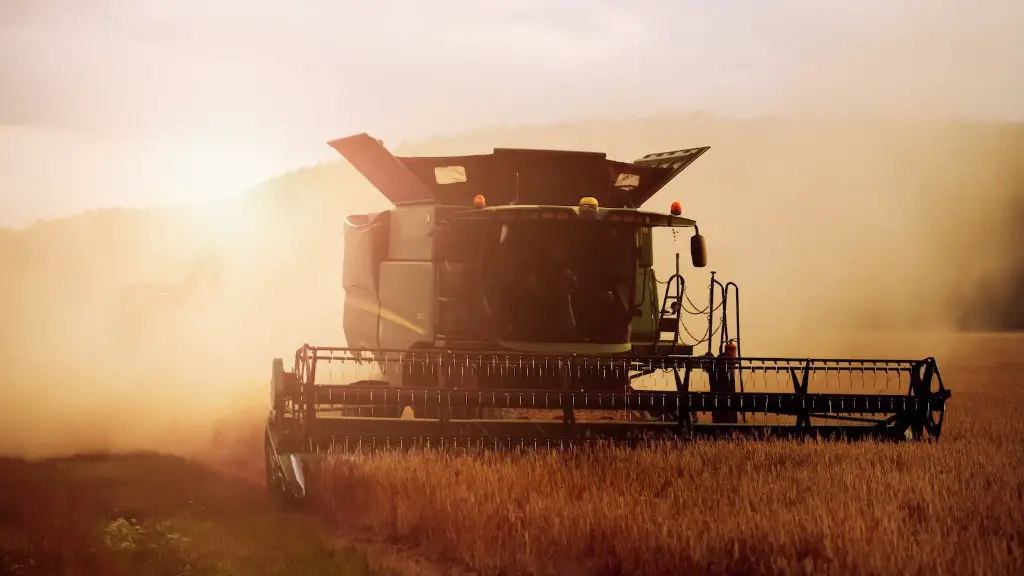Genetic engineering is used in agriculture for a variety of reasons. One reason is to produce crops that are resistant to herbicides or pests. This can help farmers reduce the amount of chemicals they use, which can be better for the environment. Additionally, genetic engineering can be used to create crops that have higher yields or are more nutritious. This can help address issues of food insecurity and malnutrition.
Genetic engineering is used in agriculture for a variety of reasons. One reason is to create plants that are resistant to herbicides or pests. This can help farmers reduce the amount of chemicals they need to use, which can be better for the environment. Genetic engineering can also be used to create plants that require less water or can grow in poorer quality soils. This can help farmers in areas where water is scarce or where the quality of the soil is not ideal.
Why is genetic engineering important in agriculture?
Some benefits of genetic engineering in agriculture are increased crop yields, reduced costs for food or drug production, reduced need for pesticides, enhanced nutrient composition and food quality, resistance to pests and disease, greater food security, and medical benefits to the world’s growing population.
GMO crops are used to make ingredients that Americans eat such as cornstarch, corn syrup, corn oil, soybean oil, canola oil, or granulated sugar. A few fresh fruit and vegetables are available in GMO varieties, including potatoes, summer squash, apples, papayas, and pink pineapples.
What are the benefits of genetic engineering to plants
The benefits of genetic engineering are many and varied. One of the most significant benefits is that due to the modifications that make crops resistant to diseases, it has been possible to increase overall yields. Many genetically modified crops are also designed to grow at a faster rate, which also helps increase overall yield. Other benefits include the fact that crops can be modified to be more drought-resistant, which is important in areas where water is scarce. Additionally, some crops can be modified to require less fertilizer, which is important from both an economic and an environmental standpoint.
Bt crops are genetically engineered to produce a toxin that protects the plant from pests. Bt cotton is engineered to control tobacco budworms, bollworms, and pink bollworms. Bt corn is engineered to provide protection against the European corn borer.
What are the two uses of genetics in agriculture?
It is a fact that organic farming practices can improve both the yield and quality of crops. This is due to the fact that organic farming practices help to improve the soil health, which in turn leads to healthier plants that are able to produce higher yields. Additionally, organic farming practices also help to produce higher quality crops, as they are grown in healthier soils that contain more nutrients.
The study found that by engineering a shortcut that eliminates the production of these toxic compounds, plants are about 40% more productive. This could have a significant impact on food production, as well as other applications such as biofuel production.
What are the advantages and disadvantages of genetic engineering in crops?
GMO foods are designed to be healthier and cheaper to produce. Advantages of GMO foods include added nutrients, fewer pesticides, and cheaper prices. Disadvantages of GMO foods can be allergic reactions or increased antibiotic resistance.
GMO crops have been controversial since they were first introduced, with some people feeling that they are unsafe and unhealthy. However, there is a growing body of evidence that suggests that these crops are actually beneficial, both for farmers and consumers.
GMO crops have been shown to produce higher yields, have a longer shelf life, and be resistant to diseases and pests. They have also been found to taste better than non-GMO crops. These benefits are a plus for both farmers and consumers.
There are still some concerns about the safety of GMO crops, but the evidence suggests that they are safe and healthy. I think we should continue to research and develop GMO crops, as they have the potential to greatly improve the food supply.
What are 4 applications of genetics in agriculture
The application of genetic principles has led to a significant improvement in the milk production of cows and buffaloes, the meat production of sheep, goats and pigs, and the egg production capacity of poultry.
There are many potential ways to improve plant yield or increase production efficiency through genetic engineering. Some examples include improving nutrient-use efficiency, introducing nitrogen fixation, and re-engineering primary metabolism (particularly increasing the efficiency of photosynthesis). By continuing to explore and develop these and other approaches, we can hope to further improve the sustainability and productivity of agriculture.
What are the benefits of gene editing in agriculture?
There are many benefits to gene editing, ranging from environmental to agricultural. One of the most notable benefits is the ability to create crops that are resistant to disease, drought, and insects. This allows farmers to reduce their use of pesticides and conserve water, which is vital for both the environment and the economy. Additionally, gene editing can be used to create new and improved versions of existing medicines, as well as create new vaccines for deadly diseases. In the future, gene editing may even be used to alter the genes of humans, making us stronger, healthier, and more resistant to disease.
Genetic engineering in agriculture has led to increased crop production by allowing scientists to increase crop yields, lower food costs, and improve food quality. This has had a positive impact on food security by providing more food to those who need it. Additionally, the medicinal value of some crops has been increased due to the introduction of new genes.
Why genetic engineering is better than conventional agriculture
Genetic engineering is the process of manipulating genes in a living organism to change its characteristics. This can be done by introducing new genetic material, or by removing or modifying existing genes.
Conventional breeding generally can only work within a species, or at most, within closely related genera. This is because the genes of different species are not compatible, so they cannot be combined through conventional breeding.
However, with genetic engineering, it is possible to insert genetic material from any life form into any other. This means that genes from different species can be combined, allowing for a much greater variety of possible combinations.
The potential harms to health from new allergens in the food supply, antibiotic resistance, production of new toxins, concentration of toxic metals, potential environmental harms, cross contamination, increased weediness, gene transfer to wild or weedy relatives, and unknown harms to the environment all need to be considered when conducting a risk assessment.
Is Improving crops possible with genetic engineering?
There are a number of reasons why genetically modified crops yield more than their non-modified counterparts. First, GM crops are generally easier to care for and require fewer inputs (fertilizers, pesticides, etc.) than non-GM crops. This results in lower production costs, which allows farmers to sell their products at a lower price. Additionally, GM crops are often more resistant to pests and disease, which further reduces production costs. Finally, many GM crops are designed to produce higher yields than their non-GM counterparts. For example, GM soybeans have been shown to yield up to 20% more than non-GM soybeans.
So, while it is true that GM crops yield more than non-GM crops, it is not because they are engineered to do so. Rather, it is because they are easier to care for and require fewer inputs. This ultimately benefits both farmers and consumers.
We believe that the cost to the animal always outweighs the benefits of genetic engineering, as by carrying out this process we are violating their rights. Genetic engineering often involves modifying animals for reasons that have no benefit for that species, and could potentially cause them pain and discomfort. We believe that it is not ethical to subject animals to this process, and that they should be respected and protected.
Warp Up
Genetic engineering is used in agriculture to improve the efficiency of crop production and to develop crops with desired traits, such as resistance to pests and disease.
Genetic engineering in agriculture is used to create crops that are resistant to herbicides and pests, and to create plants that can tolerate extreme weather conditions. This results in higher yields and less crop damage, which can lead to increased profits for farmers.





